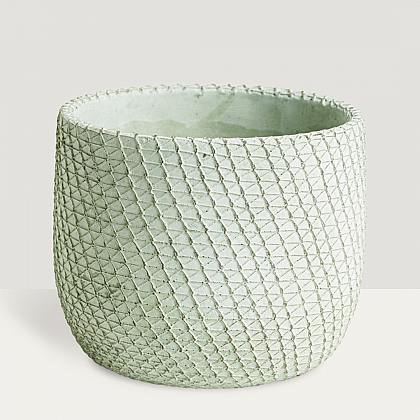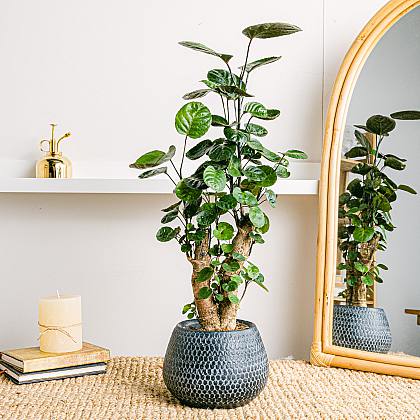Revolutionize Your Garden With Natural Soil Boosters
Tired of harmful chemical fertilizers? Want to nourish your soil and promote healthy plant growth? Discover a wide range of organic methods to revolutionize

Tired of harmful chemical fertilizers? Want to nourish your soil and promote healthy plant growth?
Discover a wide range of organic methods to revolutionize your garden with natural soil boosters. From household waste to livestock manure and even human urine, there are numerous natural fertilizers that provide essential nutrients.
Learn about calcium sources, weed utilization, and composting techniques. Improve soil health, water retention, and nutrient availability.
Transform your garden into a sustainable haven with these natural soil boosters.
Natural Fertilizers
If you want to enhance the fertility of your garden soil, you should regularly incorporate natural fertilizers into your gardening routine. DIY composting is a great way to create organic fertilizers for your plants. Banana peels are excellent natural fertilizers rich in potassium. You can add them to the hole before planting flowers or use them as mulch for long-term fertility.
Coffee grounds are another great option. They contain slow-release nitrogen and are rich in magnesium, copper, potassium, and phosphorus. You can add coffee grounds directly to the soil or compost them for even better results.
Organic gardening has many benefits, including improved soil health, reduced environmental impact, and increased nutrient availability for your plants. By using natural fertilizers, you can promote the overall biodiversity of your garden and enjoy healthier, more vibrant plants.
Liquid Fertilizers
To further enhance the fertility of your garden soil, you can incorporate liquid fertilizers, which will complement the natural fertilizers previously discussed. Liquid fertilizers offer several benefits for gardening. They're quickly absorbed by plants, providing them with an immediate nutrient boost. They're also easy to apply and can be sprayed directly onto the foliage or soil. When used properly, liquid fertilizers can improve plant growth, increase yields, and enhance overall plant health.
When applying liquid fertilizers in the garden, it's important to follow best practices. Start by diluting the fertilizer according to the instructions provided. This will prevent burning or damaging the plants. Apply the liquid fertilizer during the cooler parts of the day, such as early morning or late afternoon, to minimize evaporation. Make sure to evenly distribute the fertilizer over the entire garden area. Finally, avoid over-fertilizing, as this can lead to nutrient imbalances and damage to the plants.
Calcium Sources
To ensure optimal calcium levels in your garden soil, regularly incorporate calcium sources to promote healthy plant growth and nutrient availability. Two excellent options for providing calcium to your garden are egg shells and fireplace ash. Egg shells can be dried and crushed, then mixed into the soil or compost to release calcium gradually. They can also be used to improve the health of chickens. Fireplace ash, on the other hand, can be added directly to the soil in small amounts. It not only supplies calcium but also boosts soil alkalinity and provides potassium. You can even turn fireplace ash into a liquid supplement for your plants. By incorporating these natural calcium sources, you can enhance the overall health and productivity of your garden.
| Calcium Sources | How to Use | Benefits |
|---|---|---|
| Egg shells | Dry and crush | Gradual release of calcium, improves soil health, can be used for chicken health |
| Fireplace ash | Add directly to soil | Supplies calcium and potassium, boosts soil alkalinity, can be made into a liquid supplement |
Soil Alkalinity and Potassium
To maintain optimal soil health and promote plant growth, it's important to address the alkalinity and potassium levels in your garden. Here are four practical tips to help you with this:
Effective methods for testing soil alkalinity levels: Use a soil pH testing kit or send a sample to a lab for professional analysis. This will help you determine if your soil is too alkaline or acidic, allowing you to make necessary adjustments.
The role of potassium in plant growth and how to ensure optimal levels in the soil: Potassium is essential for overall plant health, promoting strong root development, disease resistance, and fruit production. To ensure optimal levels, you can use natural fertilizers such as banana peels or coffee grounds, which are rich in potassium. Adding wood ash to your soil can also help increase potassium levels.
Livestock Management
Now let's delve into livestock management and how you can effectively incorporate it into your gardening practices. Livestock can provide valuable contributions to your garden, from their manure for soil enrichment to their grazing practices for weed control. By implementing sustainable grazing practices and integrated pest management techniques, you can maximize the benefits of livestock in your garden. Take a look at the table below for some practical ideas on how to incorporate livestock management into your gardening routine:
| Livestock Management Ideas | Benefits | Implementation Tips |
|---|---|---|
| Use livestock manure as fertilizer | Provides essential nutrients for plants | Compost manure before adding to the garden to prevent burning plants |
| Employ livestock for weed control | Reduces the need for manual weeding | Rotate livestock in different areas of the garden to target specific weed populations |
| Integrate livestock for pest management | Controls pests naturally | Select livestock breeds or species known for their pest-eating abilities |
Weed Utilization
How can you utilize weeds to boost the health of your garden? Weeds can actually be beneficial for your garden when used properly. Here are four ways you can make use of weeds to improve your soil fertility and plant growth:
Using weeds as compost accelerators: Incorporate weeds into your compost pile to speed up the decomposition process. Weeds are rich in organic matter and nutrients, which will enhance the quality of your compost.
Using weeds for nitrogen supplementation: Many weeds, such as nettles and burdock, are high in nitrogen. Chop them up and add them to your soil or compost to provide a natural source of nitrogen for your plants.
Polyscias Scutellaria FabianWith relaxing properties44 £Hot composting to kill weed seeds: If you're concerned about weed seeds in your compost, try hot composting. The high temperatures reached during this process will effectively kill weed seeds, ensuring that they don't germinate in your garden.
Mulching with weed-free compost: After composting your weeds, use the resulting nutrient-rich compost as a weed-free mulch. This will suppress weed growth while providing essential nutrients to your plants.
Humanure
Use the urine from your household as a sterile and nutrient-rich alternative to store-bought fertilizers. Collecting and using human urine as fertilizer in your garden can provide numerous benefits. Urine contains nitrogen, potassium, and phosphorus, which are essential nutrients for plant growth. Dilute urine with water to prevent burning plants and apply it directly to the soil or use it as a foliar spray. To safely collect urine, use a clean container and avoid mixing it with feces or other contaminants. Remember to always wash your hands after handling urine. Using humanure in the garden is an eco-friendly and cost-effective way to nourish your plants while reducing waste. Give it a try and witness the transformative power of humanure in your garden.
| Benefits of using humanure in the garden | How to safely collect and use human urine as fertilizer in your garden |
|---|---|
| - Provides essential nutrients | - Collect urine in a clean container |
| - Enhances plant growth | - Avoid mixing urine with feces or other contaminants |
| - Reduces waste | - Dilute urine with water to prevent burning plants |
| - Cost-effective | - Apply urine directly to the soil or use as a foliar spray |
| - Eco-friendly | - Wash your hands after handling urine |
Expired Animal Feed
To make the most of your garden and continue nourishing your plants, consider utilizing expired animal feed. Using expired animal feed as compost can maximize the benefits in your garden. Here are four reasons why you should give it a try:
Nutrient-rich: Expired animal feed is rich in protein and nutrients, making it an excellent source of natural plant fertilizers. It provides the essential elements needed for healthy plant growth.
Composts readily: When combined with brown material like leaves or sawdust, expired animal feed quickly breaks down and turns into nutrient-rich compost. This compost can improve soil fertility and enhance plant growth.
Sustainable option: Instead of wasting expired animal feed, you can repurpose it in your garden, reducing waste and promoting a more sustainable lifestyle. It's a great way to make use of a resource that would otherwise go to waste.
Cost-effective: By using expired animal feed as compost, you can reduce your reliance on expensive store-bought fertilizers. It's a cost-effective solution that can save you money while still providing your plants with the nutrients they need.
Maximize the benefits of expired animal feed in your garden by using it as compost. It's a practical and sustainable way to nourish your plants and promote healthy growth.
Soil Nourishment Techniques
To continue maximizing the benefits of expired animal feed in your garden, consider implementing a variety of soil nourishment techniques.
Using cover crops for soil health is a great way to protect the soil from erosion and compaction while adding organic matter. Cover crops also fix nitrogen, suppress weeds, and improve moisture retention.
Another technique is implementing crop rotation for nutrient balance. This helps prevent depletion of specific nutrients, breaks pest and disease cycles, and improves soil structure and fertility. By rotating different crops each season, you can enhance nutrient uptake and increase crop yield.
These techniques, along with composting, mulching, and using mineral amendments, will revolutionize your garden by enhancing plant growth, improving soil structure, and increasing nutrient availability.
In conclusion, by incorporating natural soil boosters into your gardening practices, you can create a sustainable and thriving garden ecosystem.
From utilizing household waste and livestock manure to implementing techniques like composting and mulching, you can nourish your soil, promote healthy plant growth, and reduce your reliance on chemical fertilizers.
By embracing these organic methods, you can't only improve your garden's health but also contribute to a healthier environment.
Start revolutionizing your garden today with these natural soil boosters.


